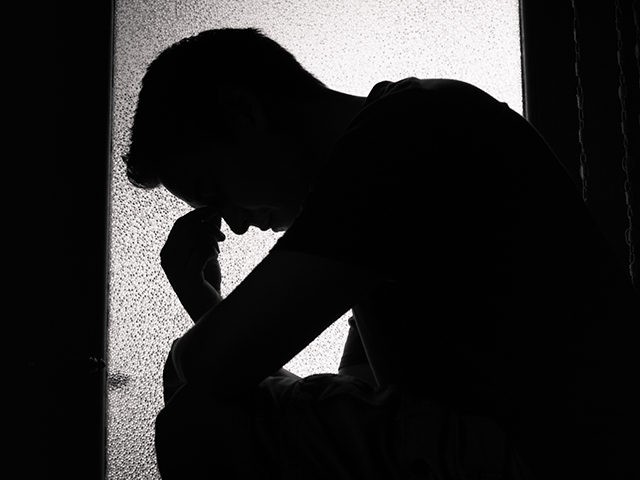Much of the media coverage of the coronavirus pandemic has been focused on the number of cases of those who have been infected with COVID-19 and its associated hospitalizations and deaths, but several studies are raising concerns about the effects of business lockdowns and social distancing on mental health.
A study published at JAMA Psychiatry in April noted that while social distancing practices have helped to “fundamentally reduce human contact” and, as a result, the spread of the coronavirus, “the potential for adverse outcomes on suicide risk is high” as a secondary consequence of lockdowns and other avoidance policies that ultimately produce greater social isolation.
Researchers Mark Reger, Ph.D., and associates urged consideration of how the economic and emotional risk factors that accompany social distancing practices have an impact on those vulnerable to anxiety, depression, and even suicide risk.
The authors pointed out that economic recessions generally yield higher rates of suicide whenever they occur. The state, business, and school closures associated with the coronavirus, however, coupled with significant stock market losses, may all be contributing to a “perfect storm” that proves to be associated with higher rates of suicide in the United States in the future.
The study pointed to multiple byproducts of the social distancing practices, implemented to keep people physically safer, that may be associated with higher levels of mental health risks, including economic stress; social isolation; decreased access to religious communities; and national anxiety created by media coverage of the coronavirus.
A study at The Lancet found that longer periods of quarantine are associated with poorer mental health outcomes.
Samantha Brooks, Ph.D., and associates stated that while social isolation may help to reduce the spread of the virus, it is also “often associated with a negative psychological effect”:
During the period of quarantine this negative psychological effect is unsurprising, yet the evidence that a psychological effect of quarantine can still be detected months or years later — albeit from a small number of studies — is more troubling and suggests the need to ensure that effective mitigation measures are put in place as part of the quarantine planning process.
“Evidence from elsewhere also emphasises the importance of authorities adhering to their own recommended length of quarantine, and not extending it,” the authors asserted.
In another study from Just Facts, researchers Andrew Glen, Ph.D., and James Agresti, president of Just Facts, found anxiety from reactions to coronavirus practices are likely to destroy “at least seven times more years of human life than can possibly be saved by lockdowns to control the spread of the disease.”
Moreover, the researchers found the “total loss of life from all societal responses to this disease is likely to be more than 90 times greater than prevented by the lockdowns.”
The authors reviewed a comprehensive range of data, including reactions to “stay-at-home orders, business shutdowns, media exaggerations, and legitimate concerns about the virus.”
Of all the studies reviewed, the lowest nationwide measure of people who have experienced psychological harm from reactions to the Chinese virus was the 19 percent of adults the Kaiser Family Foundation found in March to have reported a “major impact” on their mental health.
The Just Facts researchers stated that, based on the Kaiser study, “at least 16.8 percent of 255,200,373 adults in the United States — or 42,873,663 people — have suffered major mental harm from responses to COVID-19.”
Psychiatrist Dr. Joseph Damore Jr. reviewed the Just Facts study, and concluded, according to the study, “This research is engaging and thoroughly answers the question about the cure being worse than the disease.”

COMMENTS
Please let us know if you're having issues with commenting.